Barbara Maria Willi is an excellent cembalist, organist and educator. She is one of the dramaturges of the Concentus Moraviae festival and she is also working on her own series of old music. There are many things we could talk about, which is why we agreed at the beginning that we shall talk about two of them. First, the 11th Barbara Maria Willi uvádí (Barbara Maria Willi Presents…) scheduled for next week. And second, the expansion of the Department of Organ and Historic Interpretation at the Janáček Academy of Music and Performing Arts (JAMU).
If you look back, whose idea was the series of old music Barbara Maria Willi uvádí? Did you pitch the idea or did the agency approach you?
The series was conceived in cooperation with David Dittrich. The name Barbara Maria Willi uvádí was his idea. I was against it at first, because I couldn’t get past my own name in the name of the event, just like it is hard to hear yourself on the radio or to see yourself on TV – I just don’t like it. But he convinced me and it was a good decision. I realised that people like to see a specific person taking responsibility because they can match their face with the event. And so I am in charge of picking artists, putting the programme together and for the whole concept. I am on the stage presenting the programme before each concert. It has a certain image and relationships are established. Subscribers have their seats assigned, they know one another and they know what to expect. That being said, there is still some room for surprises. This mix makes the series even more attractive.
What is the first thing you do when you prepare the dramaturgy of the series? Do you look for skilled performers and then you dig in their repertoire, or are you focused on specific composers and then you choose from the list of suitable performers?
It depends. These two approaches are interconnected. It is a lengthy process. I have zero ideas at the very beginning when I decide to start working hard on the programme. But when I consider the current offer on the music market, the interesting projects and styles that should be represented, it all comes together. It is like a puzzle then. Thirty ideas can eventually be turned into six concerts.
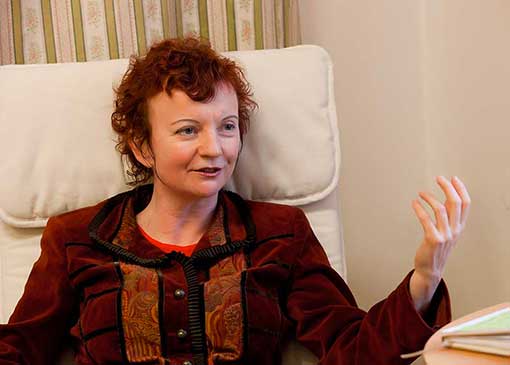 What can you say about this year’s performers? What are the common attributes of the meditative nature of Schola Gregoriana Pragensis and the spontaneity of flautist Anna Fusek, i.e. the first two performers on the programme?
What can you say about this year’s performers? What are the common attributes of the meditative nature of Schola Gregoriana Pragensis and the spontaneity of flautist Anna Fusek, i.e. the first two performers on the programme?
The answer to that question carries a key element of old music, i.e. the popularity of contrasts. This year is about the clash of elements. We will start with symbolic music of the Medieval Age represented by Schola Gregoriana and its extreme inner concentration. The spontaneity of Anna Fusek is probably the biggest contrast imaginable. I wanted to have the line-up based on alternating styles, which is why the Baroque will be followed by new styles. After that we will offer something a bit more internal – Viennese organist Peter Frisée with his organ positive. He will present the organ as a chamber music instrument because lighter and sweeter pieces for organ performances have also been composed. It will not be as impressive as, but also different than, Schola Gregoriana. After the summer break comes an ensemble which I would like to promote as much as possible. It is a group of young artists who specialise in the old music of Brno named Brno Baroque. Their task is the modern-day interpretation of famous pieces by Händel, Corelli and Bach. They want to prove that our approach to the aforementioned composers has changed over the last twenty years. Their bandleader Zdeněk Svozil is a peculiar violin virtuoso who, by the way, also plays folklore and he is able to make use of this Moravian input in the Baroque music… which I think is amazing. Following the chamber orchestra there will be a duet: myself and bassoonist Mor Biron, who joined the Berlin Philharmonic at a very young age. When I asked him whether he plays the Baroque bassoon he said “Of course”. He is so good he got bored playing just the modern-day bassoon and he decided to try something new.
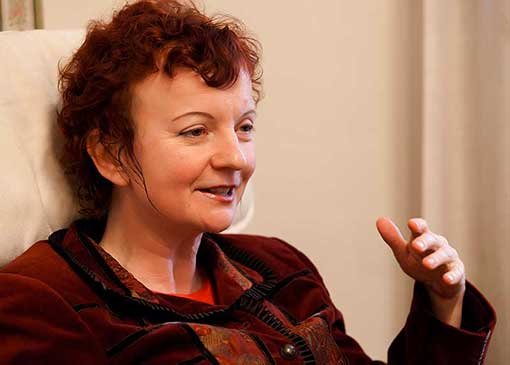 The performance of a member of the Berlin Philharmonic is evidently the most prominent element of the programme. Aren’t you afraid that the other performers will be viewed as less important because they do not represent a leading ensemble?
The performance of a member of the Berlin Philharmonic is evidently the most prominent element of the programme. Aren’t you afraid that the other performers will be viewed as less important because they do not represent a leading ensemble?
For me, the quality of the person is more important than the name of the ensemble he normally represents. It works in the music business just like it works in the fashion business. I agree what Quantz wrote more than two hundred years ago. He wrote that we should never categorise artists because each and every one of them is good at something and bad at something else. There are excellent performers with an amazing expression of slow sentences, others can impress by their virtuosity – which I think is very wise.
And we still have to mention Musica Florea…
The final stage of the programme is supposed to be focused on Christmas and its atmosphere. Irena Troupová and Marek Štryncl will be choosing from the French and German repertoire to find some Christmasy pieces.
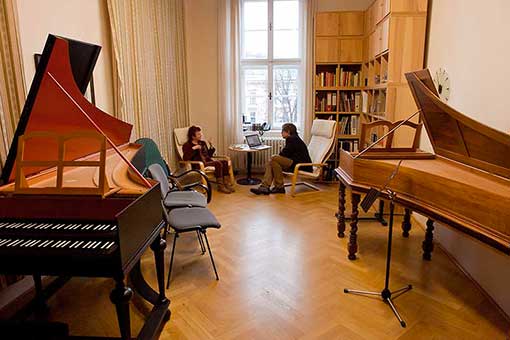 Your series covers the current calendar year between February and December. Why not the theatre season?
Your series covers the current calendar year between February and December. Why not the theatre season?
Every year in a person’s life has one defining topic. It is the same in music. I think subscribers plan their year as a calendar year. It is more natural than the academic year.
This is the eleventh time your event is taking place. Mayor Roman Onderka likes the number eleven. Have you thought about having him involved?
We did not, but thank you for the idea. Maybe we could schedule a matinee at 11 a.m.
What do you think about the politicians’ attitude towards arts – be it in Brno or on the national level?
It is really bad. Music and culture in general is hardly mentioned in the political parties’ programmes before elections. Politicians don’t even fight about art. That is how irrelevant it is for them. Too bad. It is not just about the subsidies, it is about the whole approach and the perceived importance of art. I think the recent financial crisis has been replaced by a crisis of values. However it may be an opportunity for the arts to come forward and present their demands.
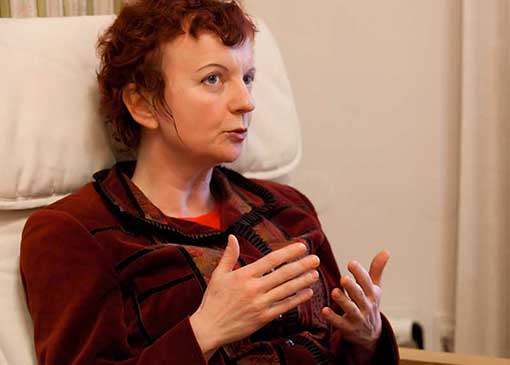 The Janáček Academy of Music and Performing Arts President Ivo Medek recently said before a concert during the Week of Old Music that he feels weird among old music aficionados, being a composer of contemporary music. It was a joke, but still… is there any point in dividing music into old music and new music? Or does it have its pros and cons?
The Janáček Academy of Music and Performing Arts President Ivo Medek recently said before a concert during the Week of Old Music that he feels weird among old music aficionados, being a composer of contemporary music. It was a joke, but still… is there any point in dividing music into old music and new music? Or does it have its pros and cons?
I asked colleagues who are known to specialise in old music whether they do new music as well. Almost all of them do. It is because old music used to be done by a group of people who did not want to do mainstream music and do what the teacher says without questioning it. We need the same attitude towards new music where we experiment with new colours and new functionalities of the instruments. The approach is very similar and at this very moment these two areas are interconnected in institutions. For example, the Freiburger Baroque Orchestra systematically works on projects where it orders pieces for itself and it plays the old and new music simultaneously. It is an opportunity for both parties. Initially we were outsiders when it comes to the old music. That’s no longer true – we have become the mainstream. And contemporary music allows us to retain the desire for originality and the desire to search.
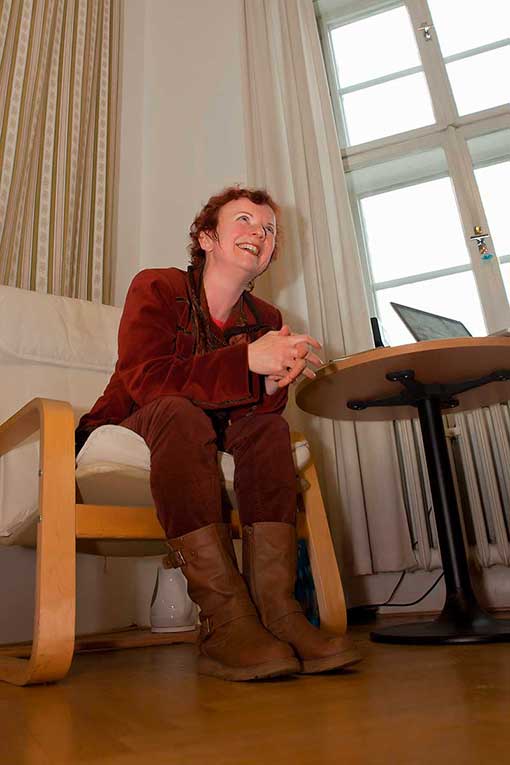 A new department focused on old music should be founded at JAMU – How are the plans coming along?
A new department focused on old music should be founded at JAMU – How are the plans coming along?
It looks like the department has been founded – it is called the Department of Organ and Historic Interpretation. It currently teaches the organ, cembalo and historic voice… to be joined in the next academic year by other Baroque instruments, which means strings, some wind instruments and historic voice as the main field of study, namely the historic violin and violoncello, violone, historic clarinet, flute and bassoon and hammer piano… basically its students will be able to form a Baroque orchestra. It will be an analogy to the already existing present-day instruments. We have submitted an application for the accreditation of the field of study to the Ministry of Education, its accreditation committee should say yes or no in March. If it does, we can schedule the admission exams for June and the first freshmen can enrol in October 2014.
Who will be the head of the department and its staff members?
I am the de facto head of the department now. As soon as the existence is formalised, we will start looking for staff members who will become the guarantors of the respective fields of study. I don’t think we will be offering all of them from the very beginning. It will be based on the students’ demand, but the fields of study for first year will definitely include Baroque violin, violoncello, lute and voice.
Was this new department your idea?
I am the engine for the time being. The foundation of this department is the result of twenty years of hard work of many people and we have finally managed to break through the ice. We expect close cooperation with Masaryk University; our students will take mandatory courses and lectures at the Department of Musicology of the Faculty of Arts. Teaching theory and practice separately makes little sense.
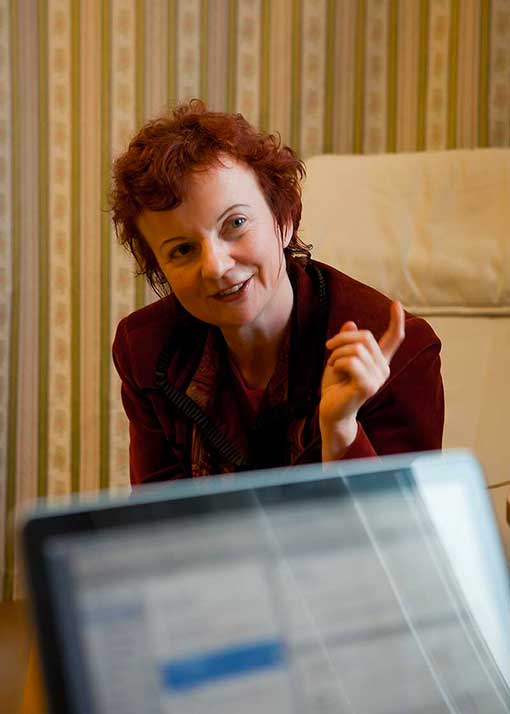 A very similar field of study is already offered by the Department of Musicology. How will yours be different?
A very similar field of study is already offered by the Department of Musicology. How will yours be different?
In our case, it is a full-time study programme with attendance on a daily basis, so its organisation is identical to that of other fields of study. Its study plan is similar; with the difference being the theory focused more on old music. The curriculum at the Department of Musicology is more project-oriented. The students actually get together only a few times over the course of the semester. The style of work is completely different.
You teach at JAMU, you are an active performer and a dramaturge – which of these roles is most enjoyable?
I enjoy the fact that I can do several things at a time. In this regard I am similar to Mor Biron because I would eventually get bored doing just one thing. I need challenges. Nowadays everybody specialises in something but you also have to be able to see the big picture. If I learn something let’s say about the practice of interpretation, I will meet new people who can be invited to perform in my series. And when I hear them play, I can implement the inspiration in my teaching methods. So it is all very well connected.
As for established brands, your name is an established brand of old music. Have you ever tried to sell it to the car maker BMW? You share the same initials.
Now I enjoy driving and I drive a lot, even though I did not need a car most of my life. I have not approached BMW but it could be a funny endeavour that could include a new form of extremely mobile concerts.
Let’s stay with this analogy – how would you describe yourself: are you a limo or a muscle car?
I think I can go back and forth. It is like changing clothes. Sometimes I am a vintage car and sometimes I turn into a red muscle car that ignores red lights. But shhh, don’t tell anyone.





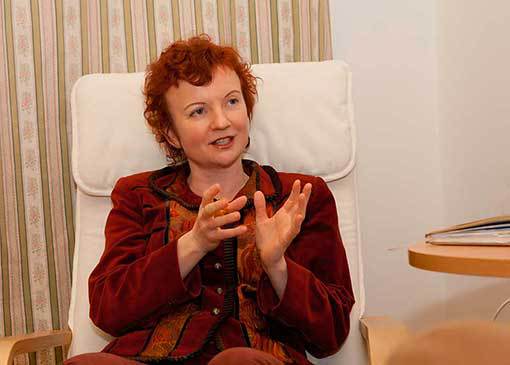


























No comment added yet..